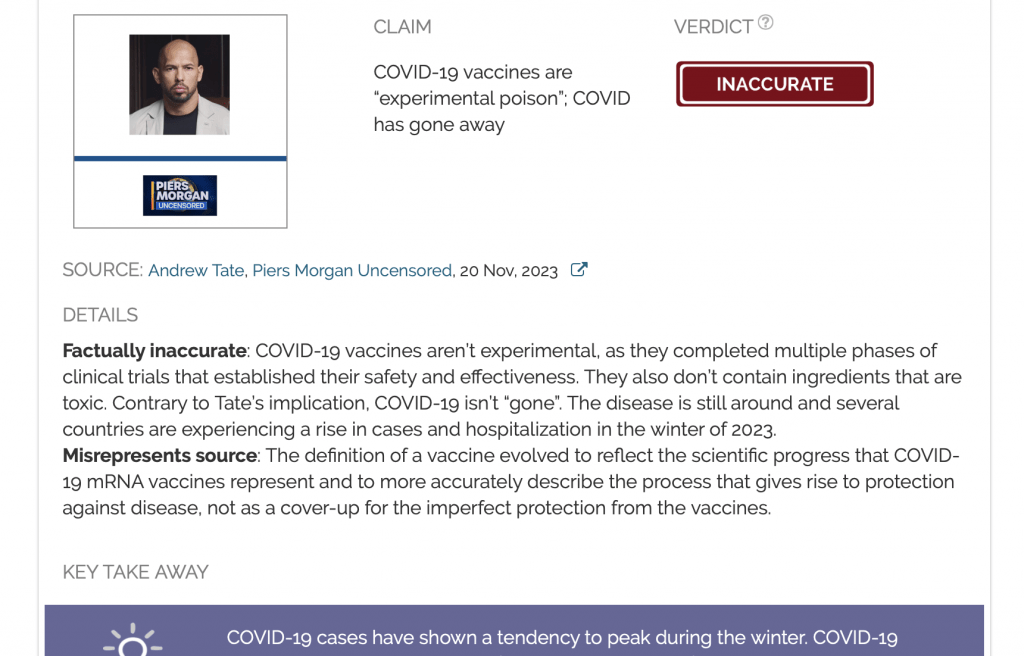Andrew Tate peddles debunked claim about COVID-19 vaccines being “experimental poison” in Piers Morgan interview
newsletter via Feeds on Inoreader 2023-12-18
Summary:

REVIEW
On 20 November 2023, English television presenter Piers Morgan interviewed prominent “manosphere” personality Andrew Tate on his show Piers Morgan Uncensored on various subjects, one of them being the COVID-19 pandemic. This isn’t the first time Morgan invited Tate onto his show. Tate appeared on other occasions, for instance, in November 2022.During the interview, Tate made a few inaccurate claims about the COVID-19 vaccines, casting doubt over their safety and effectiveness. A Facebook reel containing these claims was posted on 6 December 2023, drawing more than 104,000 views.
Tate, who has been charged with human trafficking and rape by Romanian authorities, is well-known for his misogynistic remarks, which he encourages his following to share on social media. He has also incorrectly claimed depression “isn’t real” and that depression is “a choice”—neither claim is true.
In the same vein, Tate’s claims about the COVID-19 vaccines simply rehash old, debunked vaccine misinformation. We explain below.
Claim 1 (Factually inaccurate):
“[I]njecting yourself with experimental poison for the ninth time”
This statement, referencing the COVID-19 vaccines, is a repetition of the false claim that COVID-19 vaccines are experimental. Previous reviews by Health Feedback and fact-checks from other groups have already debunked the claim.
As we explained before, the COVID-19 vaccines aren’t experimental as they completed clinical trials that assessed their safety and effectiveness before they were authorized for use in people.
While clinical trials for vaccines typically take years, those of the COVID-19 vaccines took between one to two years. Vaccine skeptics have exploited the accelerated timeline to imply that corners were cut and that COVID-19 vaccines weren’t adequately tested.
But this wasn’t the case, as it’s possible to accelerate the development timeline for a vaccine without compromising on the reliability or quality of the trials. The Johns Hopkins Coronavirus Resource Center explains that this was achieved by combining some clinical trial phases and by scaling up vaccine manufacturing capacity before Phase 3 trials were completed. Normally vaccine manufacturers would only do so after Phase 3 trials were completed, as doing so beforehand entails financial risk.
Another factor was the COVID-19 pandemic itself resulting in many cases accumulating, which enabled research